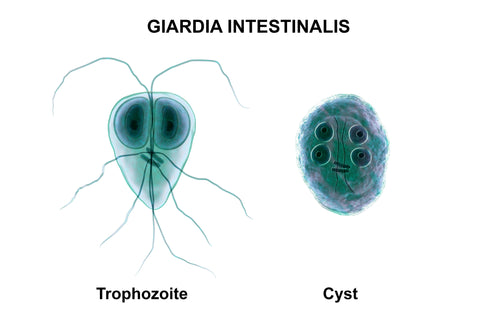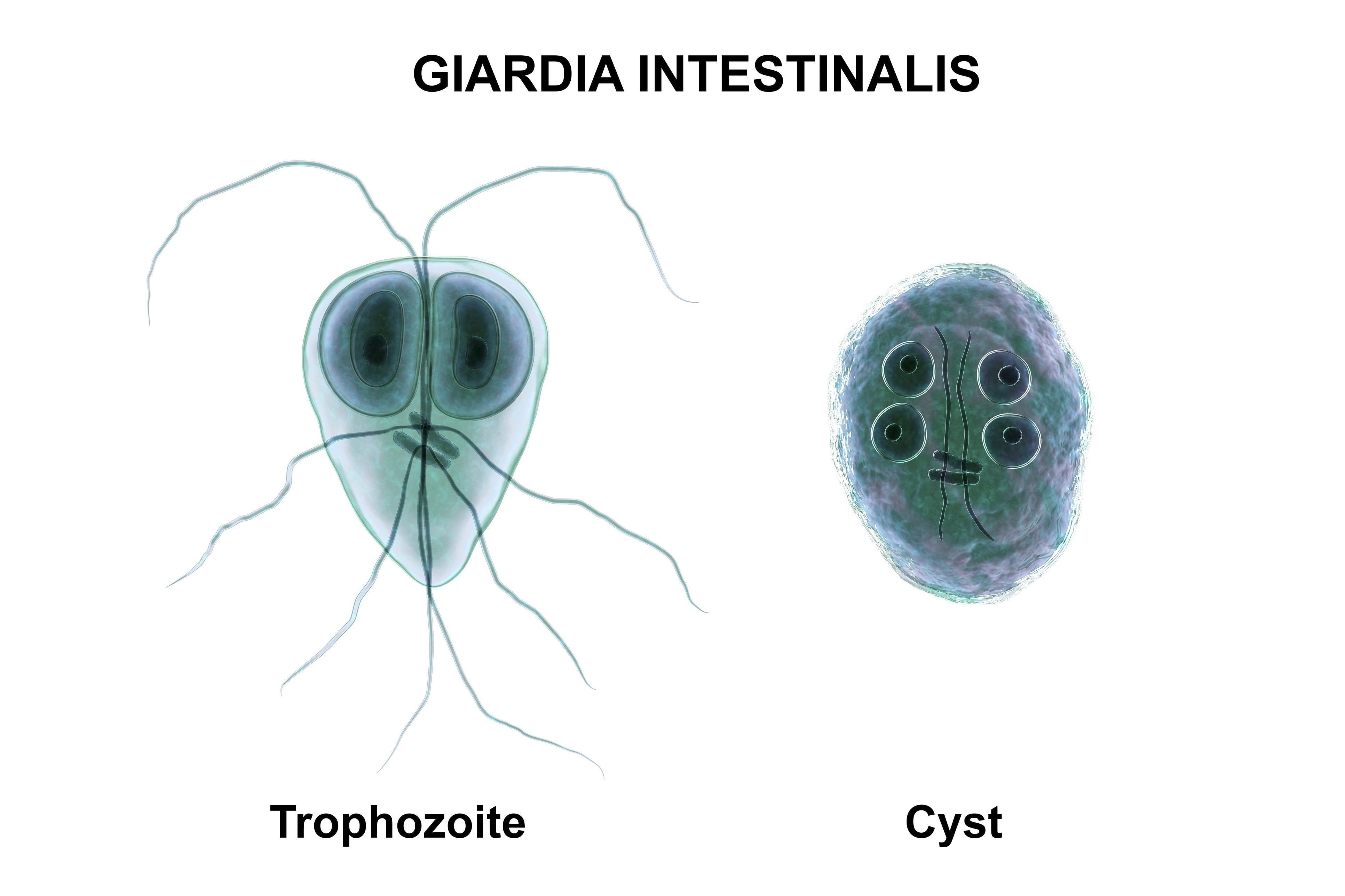
Although it is not really the new kid on the block, public awareness of giardia, and giardiasis, has become more pronounced in recent years. Giardia is a protozoan, which is actually a very tiny animal, and it is quite happy to take up residence in your intestines. Giardia moves by means of flagella and will breed in the small intestine, causing symptoms such as fever, diarrhea, repulsive burps, cramps, and dehydration.
Contaminated water is the easiest way to acquire a giardia infection, and while it is much more common in less developed nations, the United States has its share of giardiasis, too. For years, beavers were blamed for spreading giardia as the percentage of infected beavers was high. However, further research has now shown that beavers and other animals pick up giardiasis from humans. Wild animals inhabiting areas downstream of camp grounds are heavily infected with giardia.
Giardia has two forms, the active, swimming form, which is called a trophozoite and a tough cyst. Both forms are passed in the stool, but usually only the cyst survives to cause trouble with another living organism. If a cyst is swallowed in water, it will migrate to the small intestine and ‘hatch’ into a trophozoite. Trophozoites reproduce by the simple process of splitting in half. Trophozoites absorb food from the contents of the intestine, and eventually move down into the large intestine where most of them will become cysts, ready to be passed on to another victim.
Treating and Preventing Giardiasis
Not everyone who swallows a giardia cyst will actually become ill, and these people can become carriers without even knowing it. Those who do become ill will usually get over the infection in a week or two, although antibiotic treatment can also be used to help the body return to health more quickly. Anyone who is ill to the point of dehydration should see a physician immediately.
Both camping expeditions in the wilderness and travel overseas can heighten your chances of becoming ill with giardiasis. However, securing a safe water supply is easy as long as you treat your water before drinking it. Water purification tablets that are iodine based have been found to be effective for killing giardia cysts as long as the cysts are exposed to the iodine for half an hour. Chlorine tablets are not considered to be reliable at eliminating giardia and should not be used for this purpose.
Other than boiling your water, the best option available for removing cysts is to use a water filter designed to remove pathogens. Whether you choose a portable/camp water filter that will be hung up to use gravity, or one that actively pumps water, always be sure that you check the specifications to be certain that giardia cysts will be filtered out. Bottle filters and countertop gravity filters are also good choices when camping or traveling and by simply putting your drinking water, from whatever source, through the filter you will be assured that what you drink will not make you ill.


Share:
Safe Drinking Water after a Disaster
Having Your Water Tested Professionally